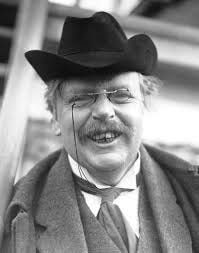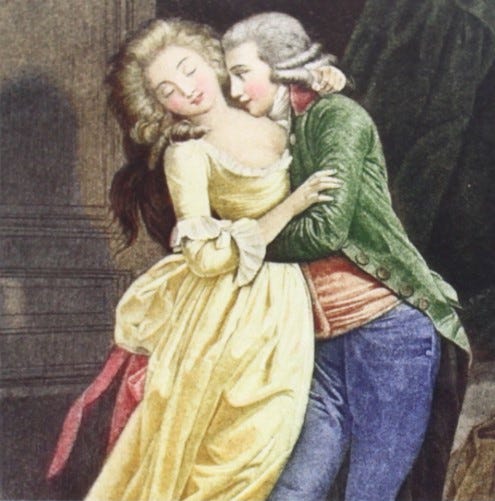Few would argue against Henry Fielding’s masterpiece (The History of Tom Jones, a Foundling, 1749) being a brilliant achievement in humor, tight plotting, and characterization. Fielding himself characterized the book as a “comic epic poem in prose”, placing it as part of the tradition that begins with Homer, persists through Ariosto and Cervantes, and culminates in Dickens.
It is a story about the classic ‘rogue with a heart of gold’, an unknown bastard charitably raised by the esteemed and highly virtuous landowner Mr. Allworthy. Fielding recounts how Tom grows up, falls in love, loses his reputation, goes on an adventure, and ultimately ends up blissfully married with the love of his life – the proper ending for any comedy in the Western tradition.
In the following I consider the moral quality of the novel, much discussed by critics throughout the centuries.
Goodness or cunning
Because of the moral failings of the protagonist, the novel has garnered Fielding a reputation as a morally loose or libertine author. At a glance this is quite puzzling, because we know Fielding was a committed Christian and an altogether moral man, and the main thrust of the novel is highly didactic and aimed at Christian virtue. It was the stated motive of Fielding’s career as an author to heighten the moral quality of novel writing in England. The author’s Christianity runs so deep that it may even explain why he was able to plot his novel so tightly: he believed in Providence. There really are no true coincidences in the world, and this understanding goes a long way in defining a writer’s approach in plotting a story.
True, Tom Jones does fall to sexual sin three times throughout the novel, but he genuinely regrets his actions, and they come very close to destroying him. His sexual escapedes are described in a ridiculous and sordid light, as nothing to be admired. Compared to the sterner Victorian authors we may note that the novel is considerably looser with sexual descriptions. But this is part and parcel with 18th century novels, not something particular to Fielding. In fact, many of the (supposedly) more morally upright contemporary authors, such as Richardson, were no more strict with sexual content. And certainly compared to anything from the post-WW2 era, the sexual content is very modest.
Nevertheless, Dr. Johnson, the great critic of the time, and one of the greatest of any era, called Fielding a blockhead and a barren rascal. You can almost hear the iconically Johnsonian pejoratives ringing in your ears. They may sound arbitrary and personal, but as T. S. Elliot pointed out, Johnson is a dangerous critic to disagree with, perhaps especially in cases when he seems unreasonable at first glance. Those may be just the moments when the master moralist is swimming in the deepest of waters.
To a degree, Johnson’s opposition was grounded in the fact that he was against novels in general:
“These books are written chiefly to the young, the ignorant, and the idle, to whom they serve as lectures of conduct, and introductions into life. They are the entertainment of minds unfurnished with ideas, and therefore easily susceptible of impressions; not fixed by principles, and therefore easily following the current of fancy; not informed by experience and consequently open to every false suggestion and partial account.”
“Novels confound the colours of right and wrong and instead of helping to settle the boundaries, mix them with so much art that no common mind is able to disunite them.”
However, this negative general attitude cannot explain everything, as Johnson wasn’t against all novels. For example, he was much enthused by Samuel Richardson, Fielding’s primary competitor. In Richardson’s work he saw virtue that he didn’t see in Fielding. We must ask what makes the difference?
According to Russell A. Hunt (“Johnson on Fielding and Richardson”, 1976) the difference lies not on moral rigor, but in the authors’ understanding of where morality is to be grounded. The morality of Tom Jones is driven by his good-natured benevolence – he simply wishes others well, instinctively. Dr. Johnson argues, this represents a mistaken understanding of human nature. In reality, our nature is broken, our inclinations perverse.
We cannot rely on our good nature or our inclination to do do good, because our nature is compromised to say the least, and our good inclinations are too weak to resist our selfishness. He sees Fielding as leading his readers to a dangerous path. Instead of instinctive benevolence, Johnson believed in free will and reasoned choice. Morality is to based on deliberate decisions guided by virtuous prudence, not on any desire to do good, or any inclination to be good. After all, we can decide to do good even when we don’t desire or feel inclined to it. This is what Johnson saw so admirable in Richardson, whose characters deliberate on moral choices in a way that Fielding himself disliked, describing it as ‘calculating’.
It is important to remind ourselves that a half-truth is often more damaging than an outright lie. A respectable, admirable, likable character who has some grave corruption in him may be more harmful to a careless reader than observing the undertakings of a complete villain. If both the reader and the author are not careful and responsible, a corrupting influence may end up being smuggled in with all the good. Nobody would want to model himself after a Iago or a Richard of York. But many might think Tom Jones an excellent model, as in many ways he is.
“It is therefore not a sufficient vindication of a character, that it is drawn as it appears; for many characters ought never to be drawn: nor of a narrative, that the train of events is agreeable to observation and experience; for that observation which is called knowledge of the world, will be found much more frequently to make men cunning than good.
"In narratives where historical veracity has no place, I cannot discover why there should not be exhibited the most perfect idea of virtue; of virtue not angelical, nor above probability . . . but the highest and purest that humanity can reach."
The question is valid. Why would an author deliberately set his moral aim lower than necessary? What justifiable reason is there not to make your models as virtuous as humanly possible?
I’m reminded here of the calls for ever more degrading ‘sexual education’ in our school system, justified by the notion that the pupils must get sufficient ‘knowledge of the world’, so that nothing may shock or surprise when they peruse the internet. Education is to be a kind of pre-emptive desensitization. It becomes a net that shall degrade even those whose young lives might otherwise leave them untouched. But in weaving such a net we have abandoned the path of virtue and decided to value cunning over goodness. After all, there are lessons that ought never be learned, education that ought never be followed.
To sum the matter up, the problem Dr. Johnson has with Tom Jones lies in his conviction that the novel is informed by a superficial and misguided understanding of human nature. Where we ought to be driven by free will and prudential decision making, Fielding presents, or appears to present, good nature and good inclinations as the engine of morality.
I say appears, because though valid in principle, I’m not convinced that Johnson’s damning judgment ultimately holds.
The duty we owe ourselves
There is an argument to be made that although Johnson is right in what he’s saying about morality in general, he may be missing the mark in Fielding’s case. For Fielding does not claim that we should allow our behavior and morality to be driven simply by benevolence and good inclination. In fact, the whole story can be understood as an example of how such an approach will lead to destruction. The necessary corrective for Tom comes in the form of prudence. Isn’t prudence exactly what Johnson is calling for? Measured, well-reasoned choices in the face of moral problems and temptations.
“Believe me, my dear uncle, my punishment hath not been thrown away upon me: though I have been a great, I am not a hardened sinner. I thank Heaven, I have had time to reflect on my past life, where, though I cannot charge myself with any gross villainy, yet I can discern follies and vices more than enough to repent and to be ashamed of.’
“I am rejoiced, my dear child,” answered Allworthy, “to hear you talk thus sensibly. You now see, Tom, to what dangers imprudence alone may subject virtue. Prudence is indeed the duty which we owe to ourselves.
“Goodness, generosity and honor make a man worthy of happiness. Religion and prudence make him able to possess it.”
Tom’s life has been an uphill struggle because as a bastard he got his beginning as the fruit of fornication. In addition, all his personal failings have to do with that same vice, as he becomes imprudently close with unfortunate women that he feels genuine concern for. Thus his wanton benevolence, lacking the reins of prudence, comes near to destroying him.
Fielding takes pains in emphasizing the damage fornication does, especially to women. With men it breaks down relationships and generates social chaos. With women all of that becomes tenfold, and reputable marriages very difficult or virtually impossible to achieve. One mother bewails the fate of her daughter:
“That villain who yesterday left my lodgings hath betrayed my poor girl – hath destroyed her. That man, that barbarous villain, hath undone my daughter.”
Fielding takes the temptations of sex very seriously. If even fundamentally virtuous, religious and good-natured men like Tom can fall into fornication without the guidance of keen prudence, how much the worse for the average guy or girl whose virtue is set at the median?
Perhaps this explains why Dr. Johnson finds Fielding’s story distasteful: given the dangers of sexual sin, we are in dire need of exemplary models to follow. We need only to look in the mirror to find someone likely to fail. In a novel we might have the opportunity to observe a paragon who has all the qualities that can prevent that same failure. Why not give your readers such an example to follow, instead of only reflecting on them the weaknesses they already possess?
This way of arguing may be selling Tom a bit short. G. K. Chesterton has a considerably more charitable view on the young man. Despite his lack of prudence leading him to sexual sin, Tom’s virtuous character is not to be taken lightly.
“The practical morality of Tom Jones is bad; but I cannot see any proof that his theoretical morality was particularly bad. There is no need to tell the majority of modern young men even to live up to the theoretical ethics of Henry Fielding. They would suddenly spring into the stature of archangels if they lived up to the theoretical ethics of poor Tom Jones.
Tom Jones is still alive, with all his good and all his evil; he is walking about the streets; we meet him every day. We meet with him, we drink with him, we smoke with him, we talk with him, we talk about him. The only difference is that we have no longer the intellectual courage to write about him.”
Chesterton makes the point that unlike Fielding, modern writers dare not write about real men with real goodness and real badness. Instead, vulgar, nasty authors write about vulgar and nasty men, and puritanical authors write about perfectly good men. Nowadays the puritanical authors have gone extinct (or changed form into a kind of subverted inverse-puritanism), and we are left with authors obsessed with the base and the degraded.
“The modern instinct is that if the heart of man is evil, there is nothing that remains good. But the older feeling was that if the heart of man was ever so evil, there was something that remained good--goodness remained good.”
We need to resort to dusty book shelves and pick up an old tome written by our ancestors so we may find a depiction of a complete man, with real goodness in his heart despite all the wickedness. The irony is that modern critics would call a man like Tom unrealistic in how virtuous he is, suffocating in how ‘repressive’ his morals are, and toxic in how committed he is to traditional masculinity. The same protagonist whom critics of past centuries found dangerously libertine and morally compromised constitutes in modern eyes the epitome of bigoted Reaction, old-fashioned chauvinism, and religious fundamentalism. A telling sign of cultural shift, or rather cultural decay.
Ethics of honesty
There is wisdom in agreeing with Dr. Johnson and emphasizing the importance of reason and prudence as the necessary backbone of morality, and in reminding us that simple benevolence will not suffice. On the other hand, we ought to admit that there is a healthy sense of integrity, trust and confidence in the approach Fielding took with Tom Jones. In the words of Chesterton: “Telling the truth about the terrible struggle of the human soul is surely a very elementary part of the ethics of honesty. If the characters are not wicked, the book is.”
Though bad books may become a negative influence, it is also true to say that what is properly right can never really be threatened by a bad example, or become perverted by the perverse. For goodness and propriety exist independently of all human wickedness. Right is right, even if nobody does it. Wrong is wrong, even if everybody is wrong about it. While this understanding doesn’t permit us to become lax and careless, it offers us a secure point of vantage from which to face man’s brokenness.







